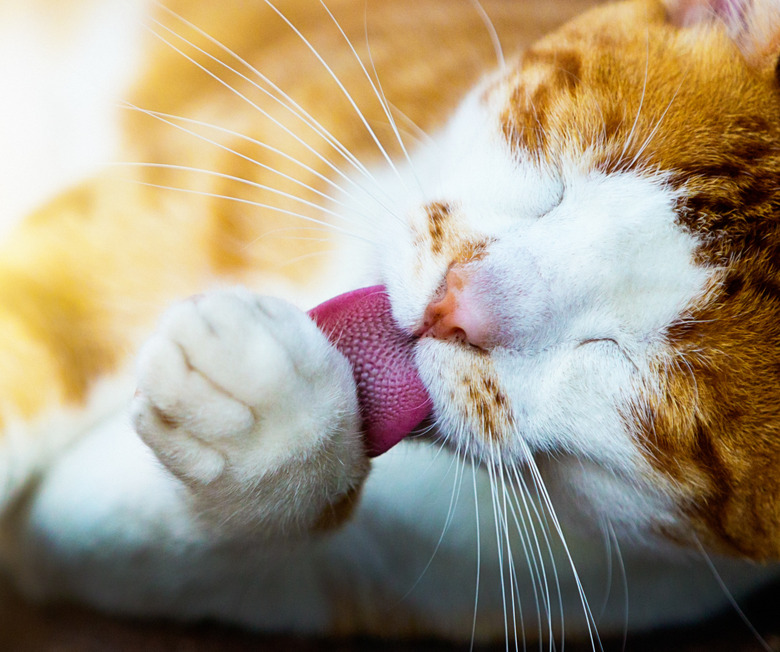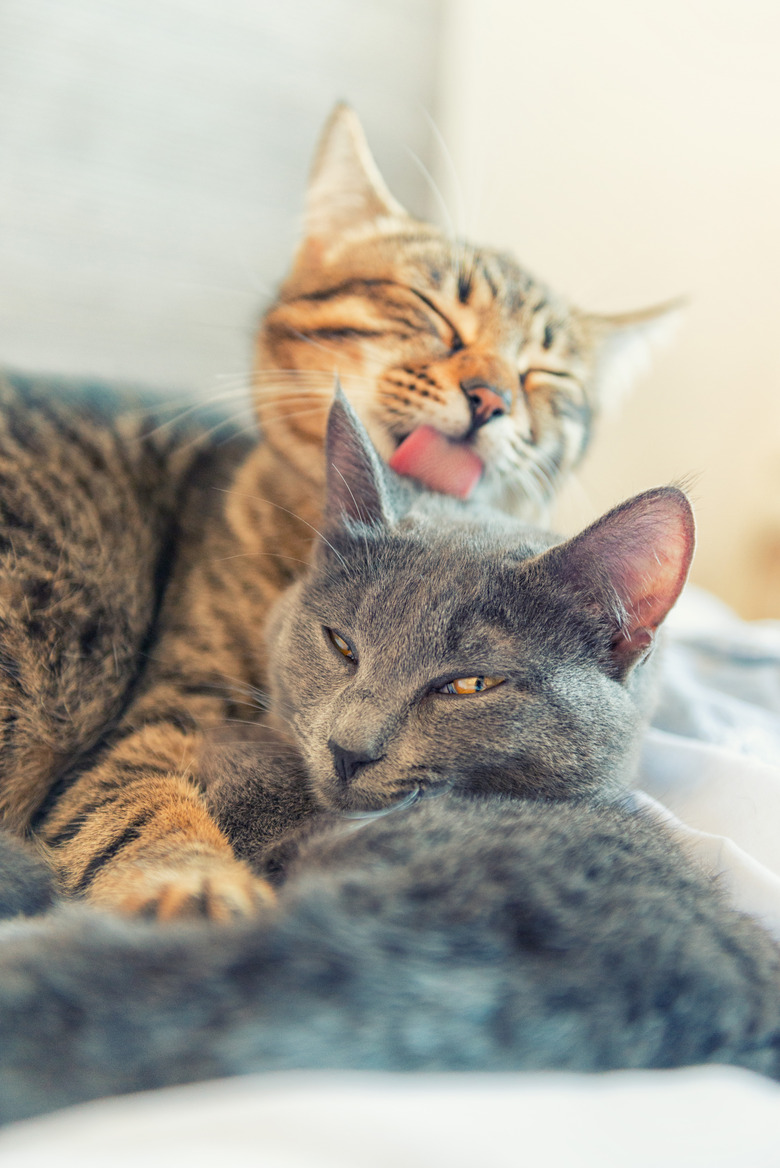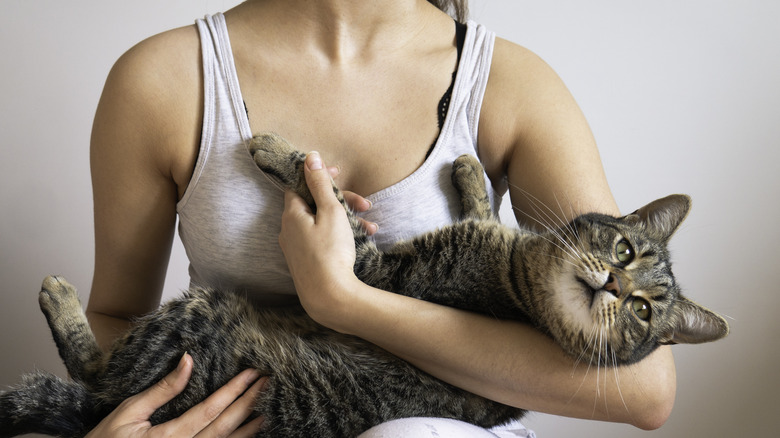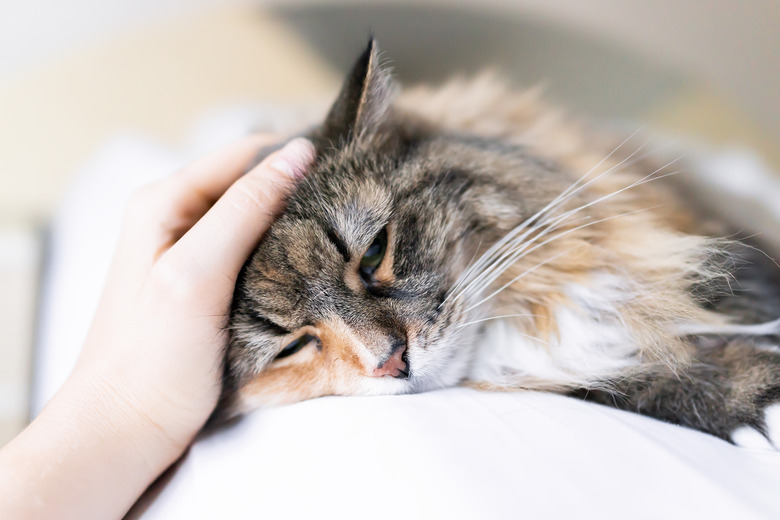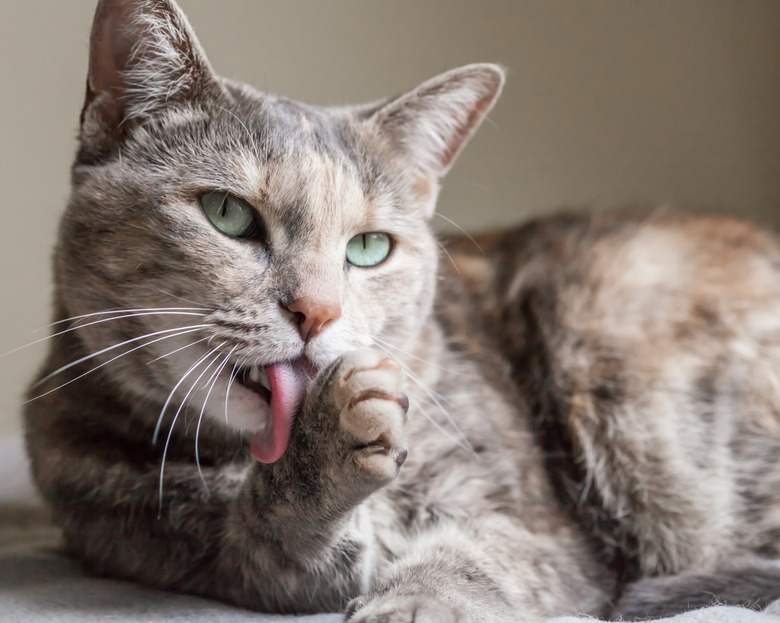Why Do Cats Groom Themselves After You Pet Them?
Though cat behavior will always be a bit of a mystery to humans, their many contradictions will always keep people on their toes. When you're having a cozy day petting your kitty, you might be confused when after you stop petting, your cat starts grooming themselves. Even though it seems like you were sort of doing something like grooming, cats lick and groom themselves afterwards. Cat grooming is something you've probably seen your cat do plenty of times, but why do they groom themselves after you've already been petting them? As usual with cats, there are many possible explanations.
Your cat may be grooming just to groom
Your cat may be grooming just to groom
The simplest answer to your cat grooming after you pet them is that they just want to. Cats clean and groom themselves a lot. According to VCA Hospitals, cats spend as much as 30% to 50% of their time doing some kind of grooming behavior.
Whether it's licking their front paws, their back or the rest of their body, cats are actually designed for grooming. Their tongues are covered in thousands of tiny spines, called pappillae. These tiny spines are perfectly designed to comb through their fine hair. Grooming also helps cats to remove anything like parasites or other outside elements from their fur, and it distributes their natural oils throughout their coat and skin to keep their coat healthy. So even though your petting session may be really cozy, it may be interrupting your cat's regularly scheduled grooming.
Your cat may be doing mutual grooming with you
Your cat may be doing mutual grooming with you
Another possible explanation for your cat's behavior is that your kitty might be trying to join in on the grooming party. Cats learn to groom themselves from an early age, usually taught by their mother. Their mama cat grooms them and teaches her kittens to groom each other as well, which is known as mutual grooming. There's a lot of evidence that cats see humans as a big cat, like a mother or sibling figure. So when they start grooming themselves after you've been petting them, your cat may be trying to recreate that kind of bonding. They're showing you that they care and that they think of you as a part of their kitty family.
Cats may not like petting as much as you think
Cats may not like petting as much as you think
When you pet your cat, it usually feels good. It might even feel calming and sweet. It's a great time to bond with your beloved feline. However, sometimes cats don't like too much petting. According to the VCA Hospitals, the sensation of petting can cause some cats to feel overstimulated. Some cats might react by trying to bite or running away. Another way your cat might react is by grooming. If they're grooming, then you'll probably stop petting. So if you notice when you pet your cat, if they react as if they don't like someone touching that area and then start to groom it, you may want to give them a little break.
There might be a health problem
There might be a health problem
Although much of the time your cat's grooming behavior is perfectly normal, sometimes, it's a sign of a health problem that you may need to address. One of those problems is Psychogenic Alopecia. According to Cat Health, this condition is hair loss caused by emotional or psychological over grooming behavior. If you've noticed that not only does your cat groom themselves when you're petting them, but all the rest of the day. Or if you notice hair loss or other symptoms, it may be time to take your kitty to the vet.
A related condition is Hypersthesia, where your cat might have increasingly sensitive skin caused by emotional or psychological trouble. If your cat starts to get twitchy, has rippling skin across their back or other strange behaviors, then your kitty may need attention from a vet or behaviorist. A professional can help decrease stress in your cat's life that is at the root of their strange behavior.
In conclusion
In conclusion
For the most part, your cat grooming themselves right after you finish petting them is perfectly normal. They may just being performing their regular grooming rituals or bonding with you. But if their grooming comes with other strange or aggressive behaviors, then they might be stressed or overstimulated. So as with any unusual or changes in behavior, talk to a professional to make sure your cat is happy and healthy.
